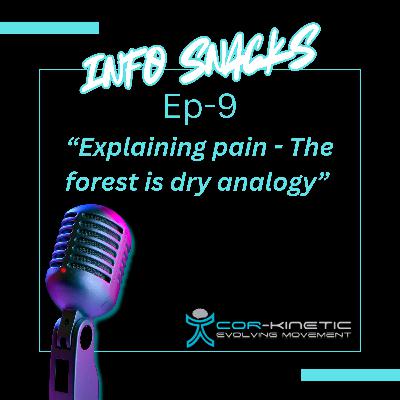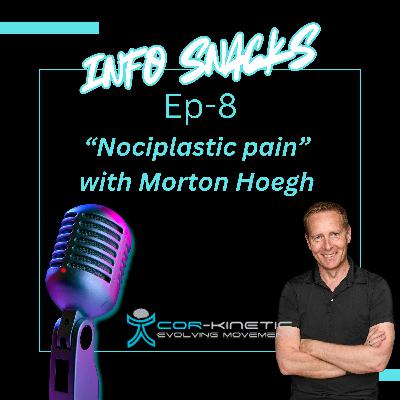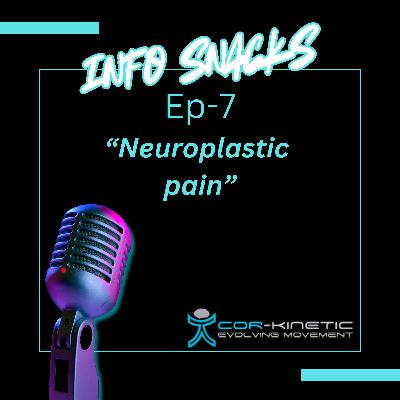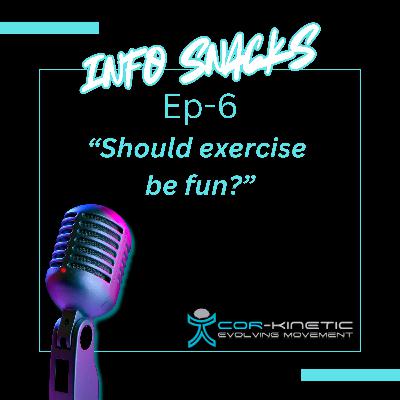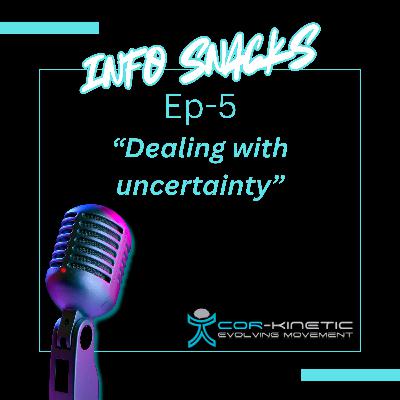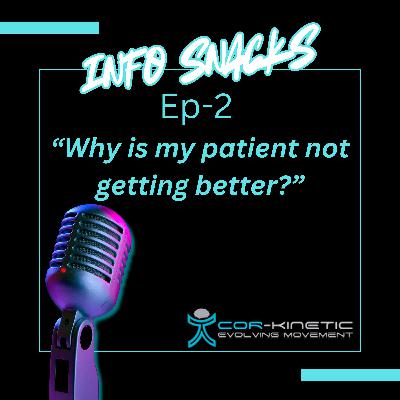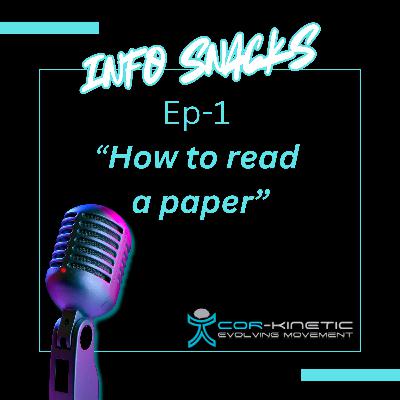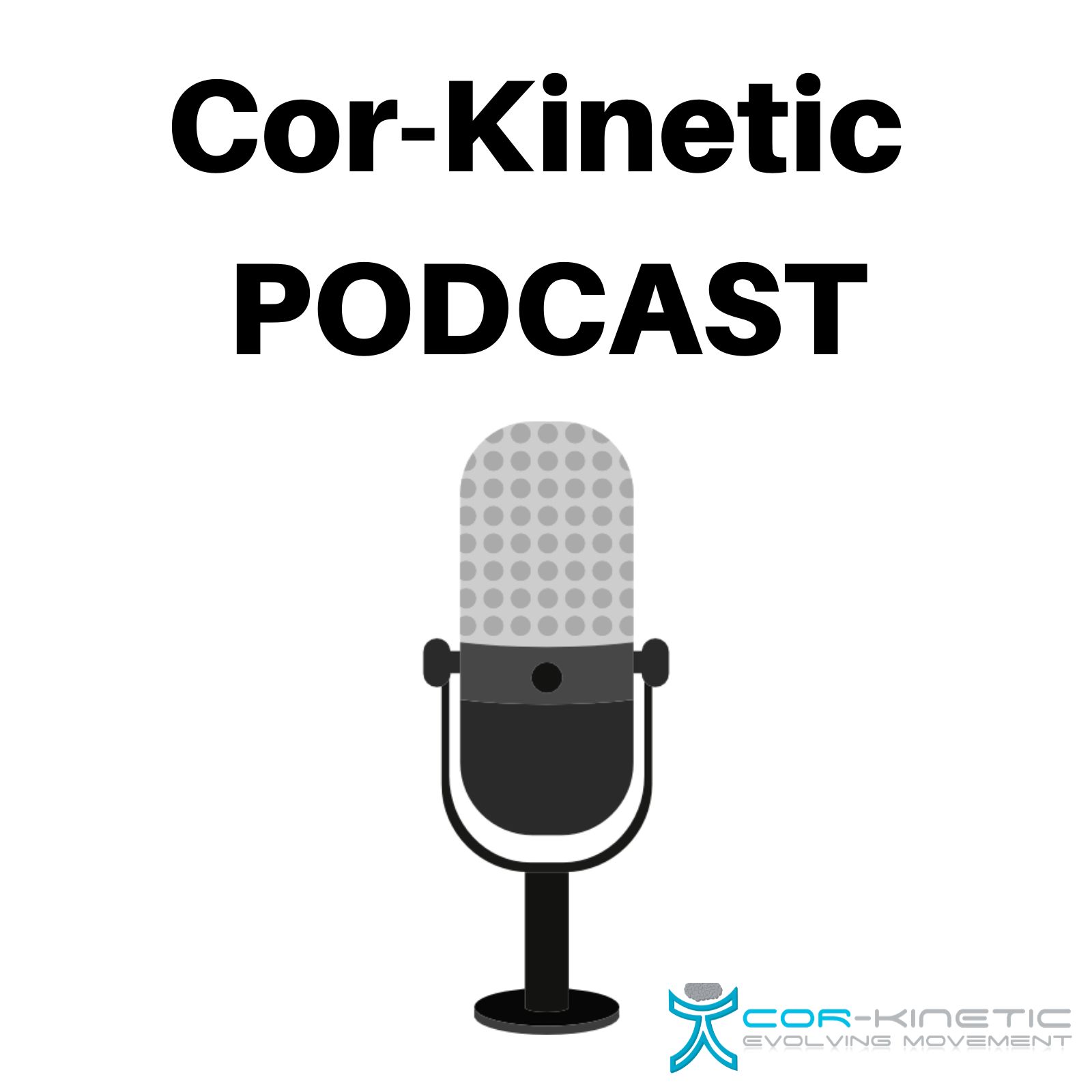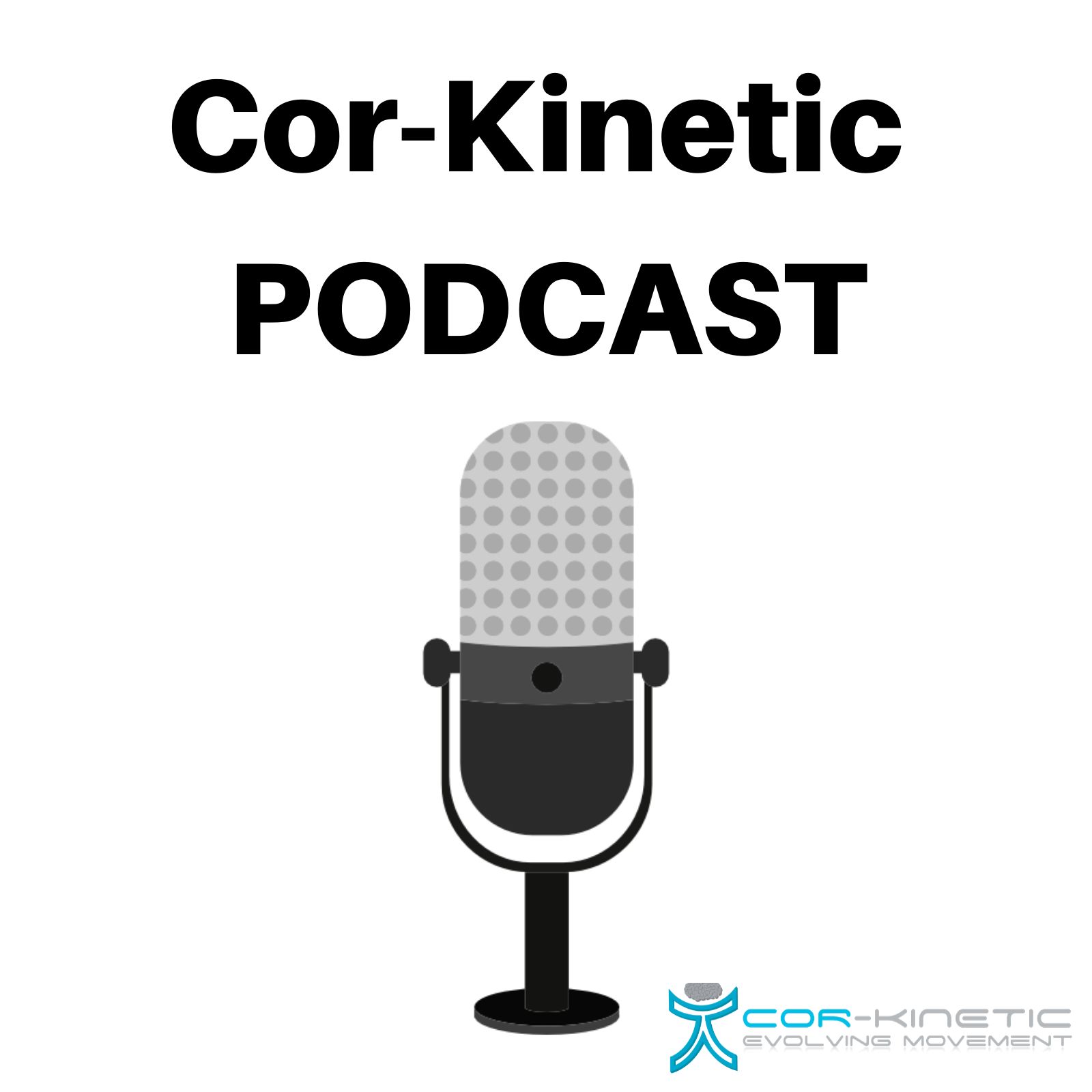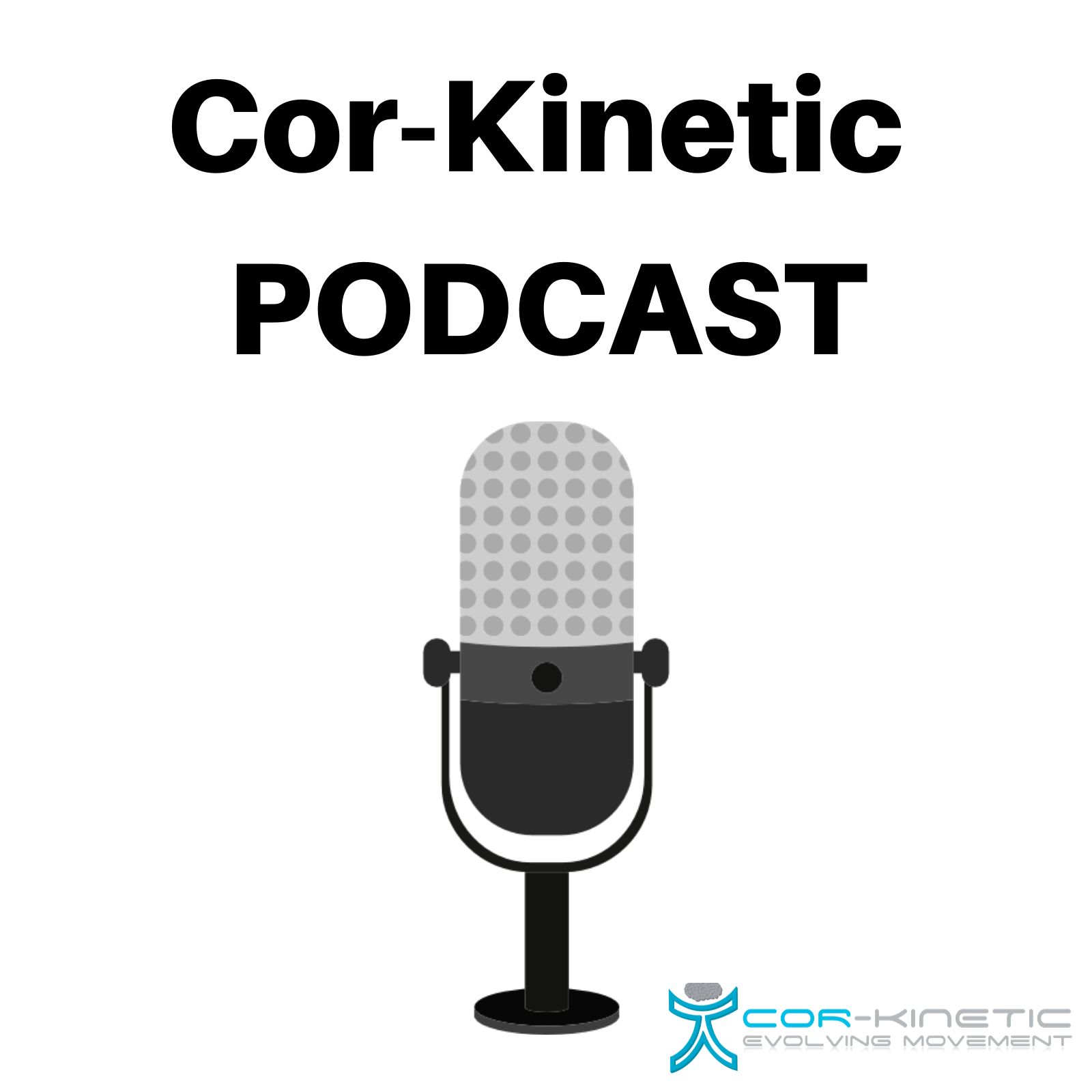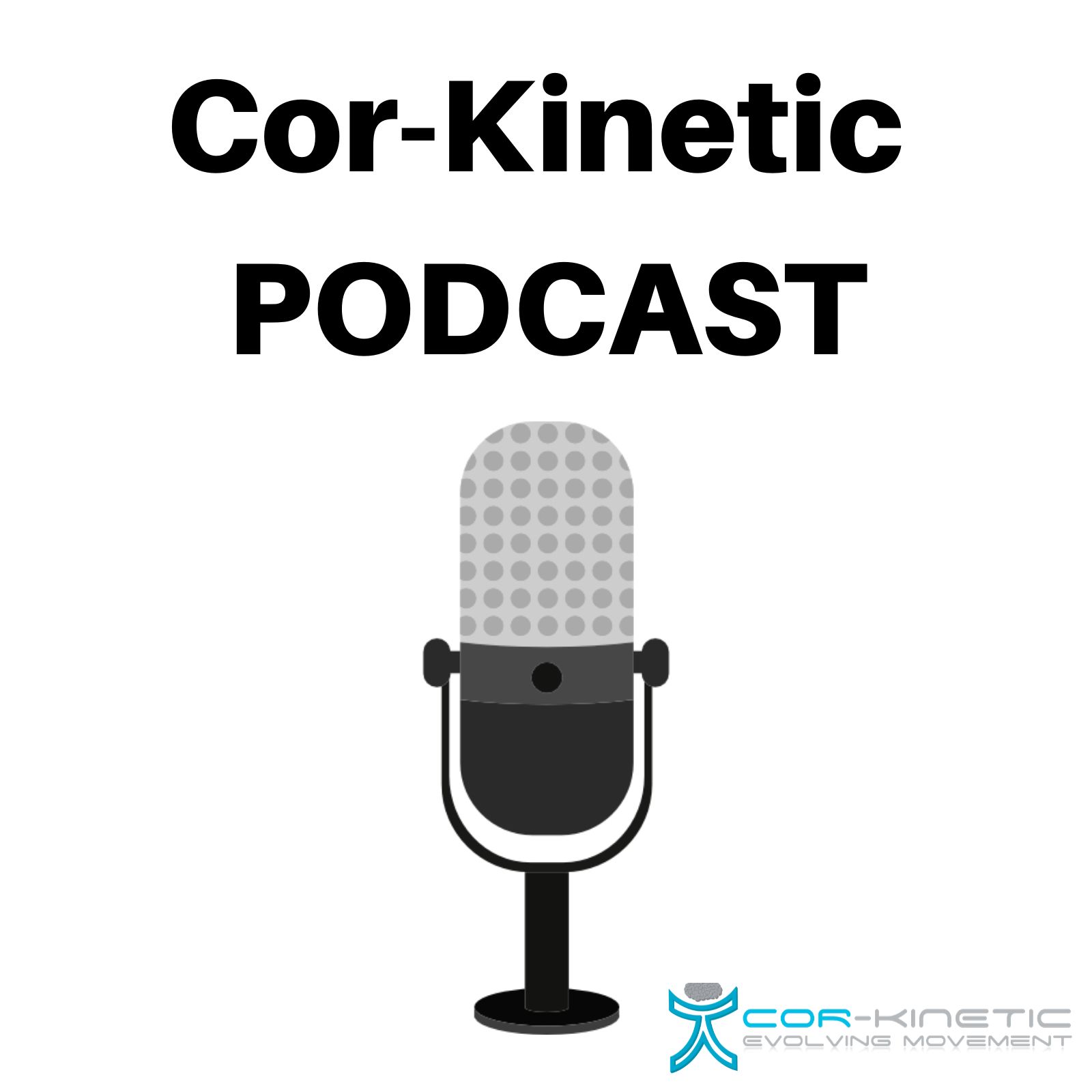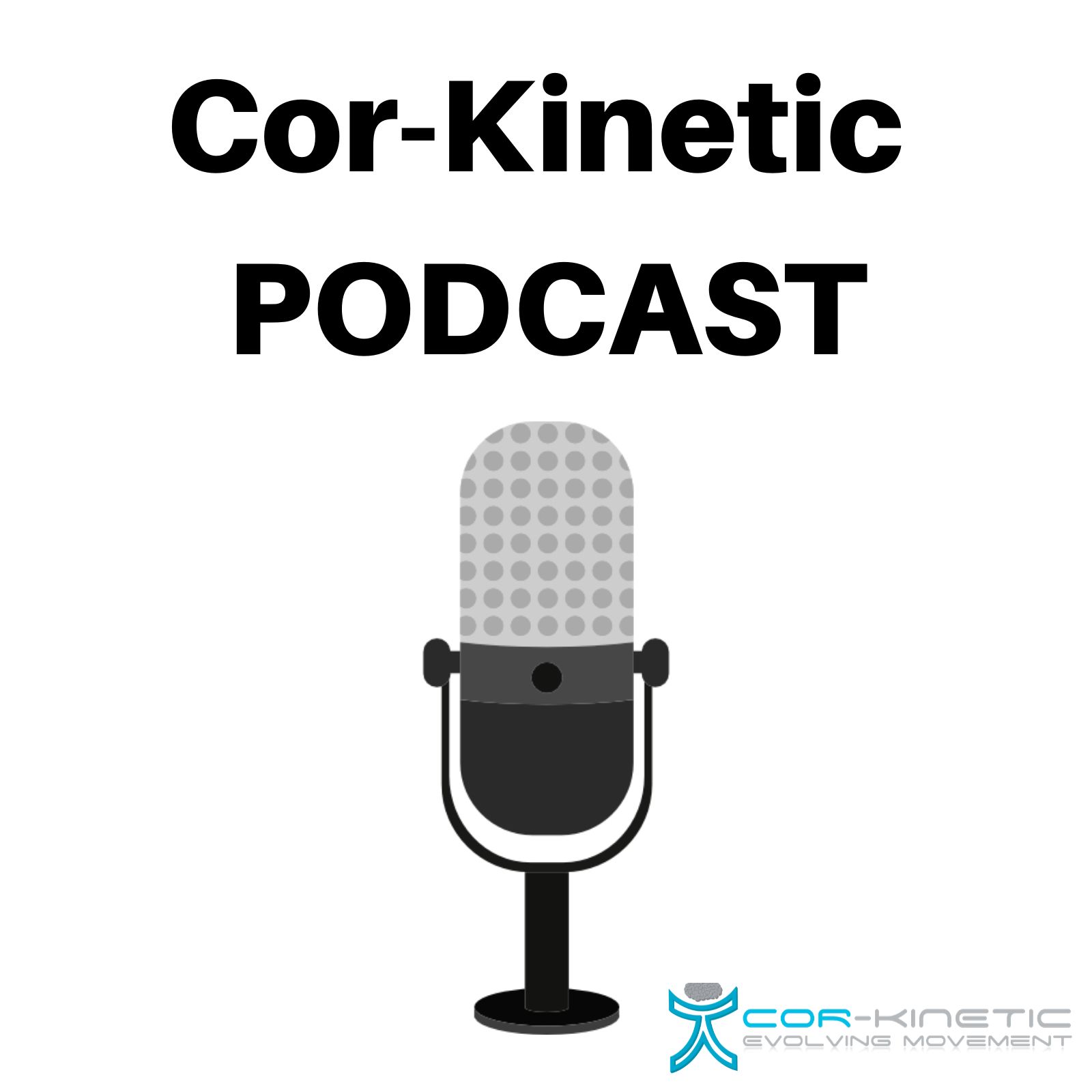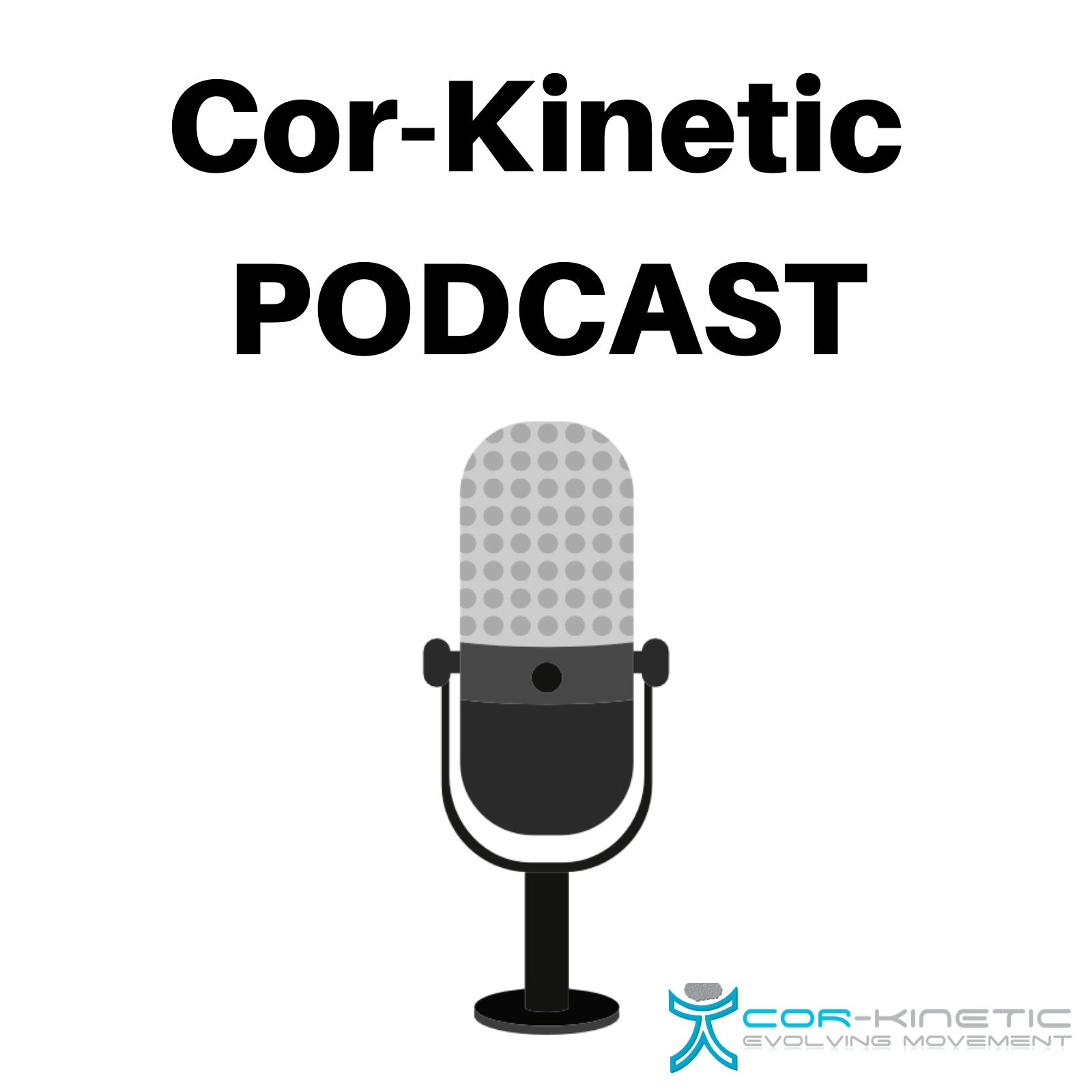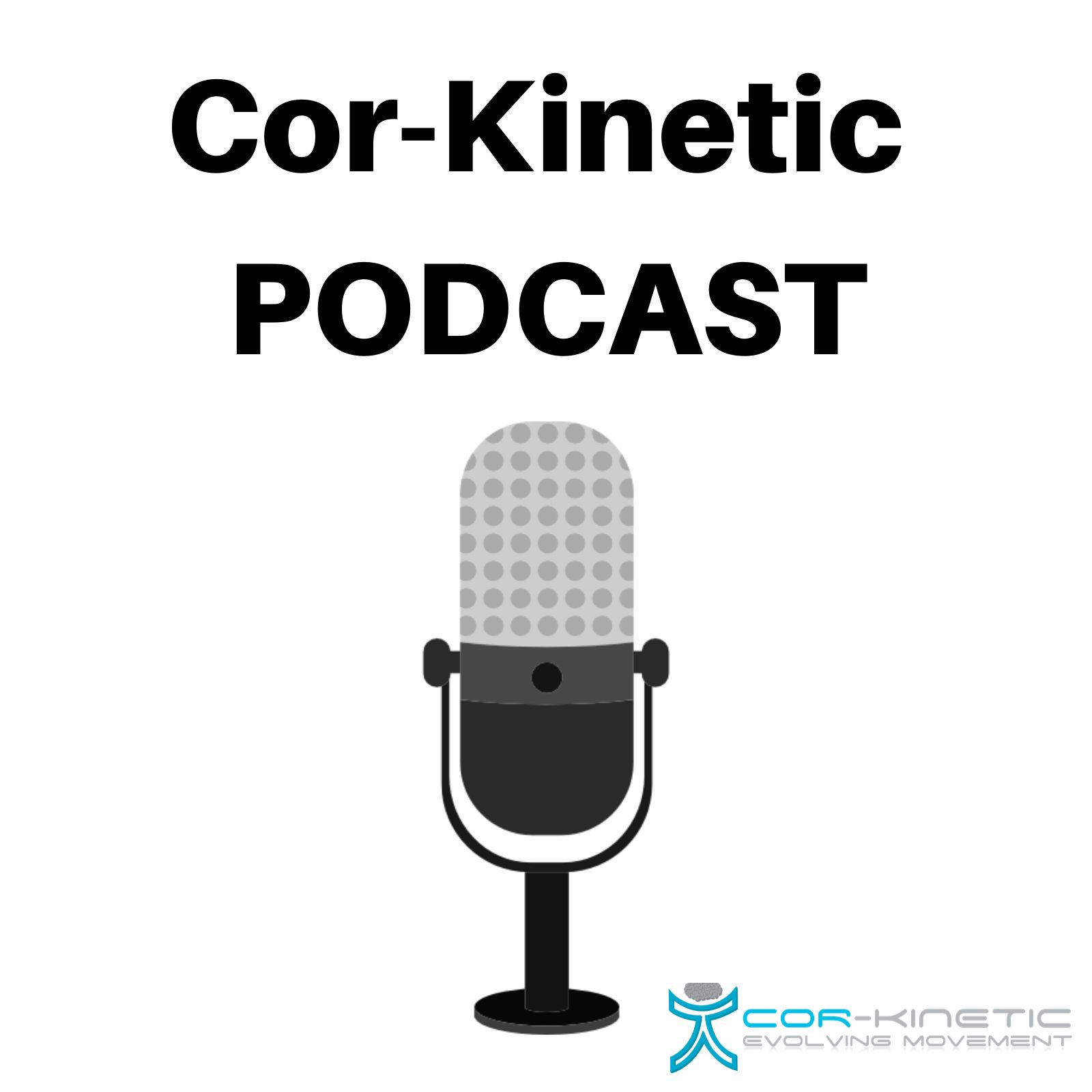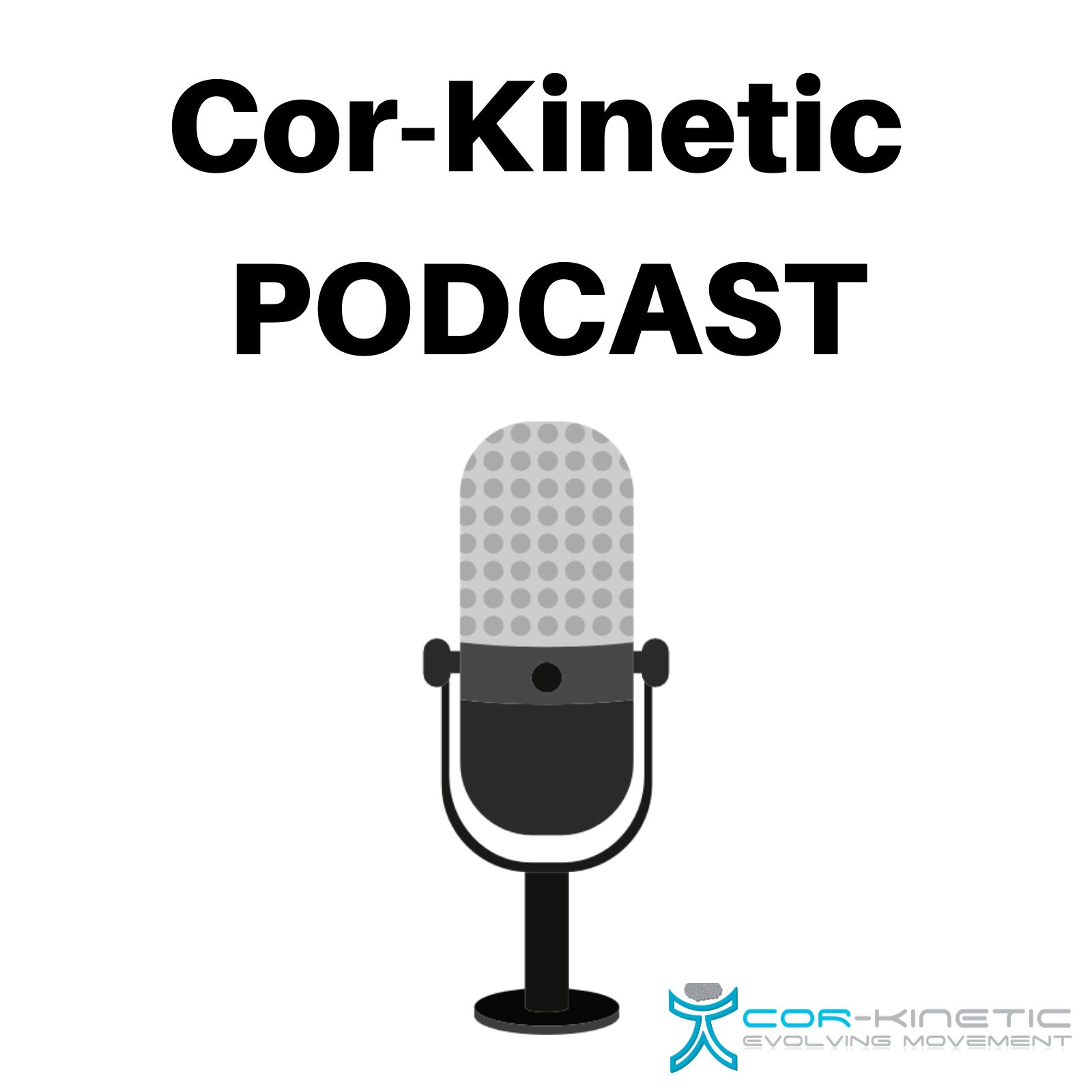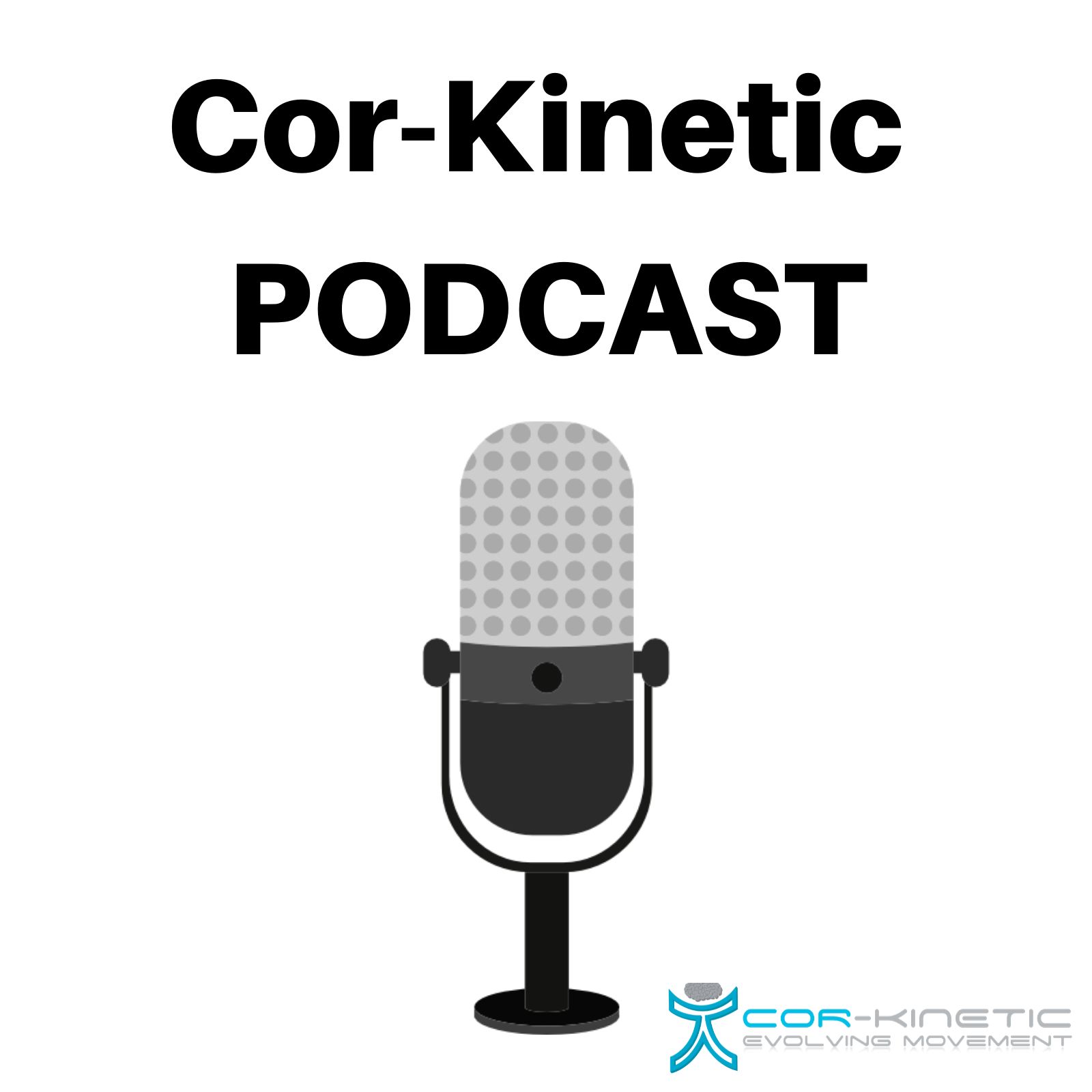Discover Cor-kinetic
Cor-kinetic

27 Episodes
Reverse
In this episode, Ben is joined by tendon expert & professor at Monash university in Melbourne, Peter Malliaras! Peter & Ben discuss:Why tendons, whats Pete's journey!
Exercise for tendons, how does it actually work?
The role of the organism in tendon health and rehab
Pete's approach to tendon rehab, utilising a parallel approach
The push back on Pete's research into shockwave therapy
Enjoy!!!
Join Ben as he talks about the complexity of pain!
An analogy Ben uses is "making the forest dry" to understand some of the contributors we have to pain arising and how we can make this understandable for our patients
Ben discusses three contributors to causation, risk factors, initiating actions and also maintaining factors. All 3 contribute to our patients current state although mostly initiating events are looked at!
Join Morton & Ben as they chat about the complex and confusing world of nocicplastic pain
Nociplastic pain is......
Pain that arises from altered nociception despite no clear evidence of actual or threatened tissue damage causing the activation of peripheral nociceptors or evidence for disease or lesion of the somatosensory system causing the pain.
Morton & Ben discuss.....
Whats the difference between a pain descriptor and a pain mechanism?
Why does the term nociplastic pain exist? What was the need for it?What mechanisms might underpin nociplastic pain? What treatments might help nocicplastic pain? Should it be a focus of treatment?
About Morton.....
After qualifying as a clinical physiotherapist (1999) and completing several clinical exams, Morten was granted the title of specialist physiotherapist in musculoskeletal physiotherapy (2005) and sports physiotherapy (2006). From 2010-12 he joined the multidisciplinary Pain: Science & Society MSc-program at King's College London (UK). Between 2015-19 Morten did his PhD in Medicine/pain at Center for Neuroplasticity and Pain (CNAP), Aalborg University, where he is now associate professor. Recent paper on Nociplastic pain - https://www.jospt.org/doi/10.2519/jospt.2025.13335
Join Ben as he dives into the world of neuroplastic pain!
"Neuroplastic pain is a type of chronic pain that occurs when the brain misinterprets safe signals from the body as dangerous. It's not imaginary, but it can be treated psychologically"
Ben asks.......
Can we really say that pain is from the brain simply because of the absence of structural issues?
Is FMRI more reliable at diagnosing the pain source than MRI?
Can neuroplastic pain rule out nociplastic pain & associated nociception?
Join Ben as he dives into the tricky subject of if exercise should be fun!
Fun is good! But maybe we need more than fun to really inspire us. Sometimes we have to do things that aren't fun but they are easier or convenient
Instead we may need to focus on the benefits and value that we gain even if thew process is not fun or enjoyable!
In this episode Ben dives into the world of uncertainty in healthcare
Ben discusses 3 main areas. Uncertainty for clinicians with tests and treatments, uncertainty for patients and then communicating uncertainty.
One of the biggest areas is the emotions associated with uncertainty, often anxiety of not knowing what is going to happen
Here are two papers discussed
The ubiquity of uncertainty in low back pain care
https://pubmed.ncbi.nlm.nih.gov/36215924/
Tolerating Uncertainty - The Next Medical Revolution?https://pubmed.ncbi.nlm.nih.gov/27806221/
Join Ben for the latest episode and he explains why a movement snack is quite different to an exercise snack!
One of the key differentials is INTENSITY!
Movement snacks are really about pain and not about fitness!
Give it a listen.....
Join Ben for the 3rd episode of the info snacks Cor-Kinetic podcast
This episode looks at the initial appointment fundamentals that should be covered. Ben explores this from both a person focused and traditional clinical perspective.
Check out the upcoming Cor-Kinetic mentorship starting on the 23rd September
https://www.cor-kinetic.co.uk/online-mentorship
Research
Kamper SJ, Haanstra TM, Simmons K, Kay M, Ingram TGJ, Byrne J, Roddick JM, Setliff A, Hall AM. What Do Patients with Chronic Spinal Pain Expect from Their Physiotherapist? Physiother Can. 2018;70(1):36-41. https://pubmed.ncbi.nlm.nih.gov/29434416/
Subialka JA, Smith K, Signorino JA, Young JL, Rhon DI, Rentmeester C. What do patients referred to physical therapy for a musculoskeletal condition expect? A qualitative assessment. Musculoskelet Sci Pract. 2022 https://pubmed.ncbi.nlm.nih.gov/35334352/
Lim YZ, Chou L, Au RT, Seneviwickrama KMD, Cicuttini FM, Briggs AM, Sullivan K, Urquhart DM, Wluka AE. People with low back pain want clear, consistent and personalised information on prognosis, treatment options and self-management strategies: a systematic review. J Physiother. 2019 https://pubmed.ncbi.nlm.nih.gov/31227280/
Smuck M, Barrette K, Martinez-Ith A, Sultana G, Zheng P. What does the patient with back pain want? A comparison of patient preferences and physician assumptions. Spine J. 2022 https://pubmed.ncbi.nlm.nih.gov/34551322/
French SD, Nielsen M, Hall L, Nicolson PJA, van Tulder M, Bennell KL, Hinman RS, Maher CG, Jull G, Hodges PW. Essential key messages about diagnosis, imaging, and self-care for people with low back pain: a modified Delphi study of consumer and expert opinions. Pain. 2019 https://pubmed.ncbi.nlm.nih.gov/31356451/
Join Ben as he discusses the question of "Why is my patient not getting better"
Even though we have average prognosis and effects of treatments at a population level, we often don't know about the patient in front of us
Ben looks at:
RCTs - What are they good for?
Prognosis & response to treatment and also the concept of prognostic factors that will affect outcomes for patients
Join Ben as a he revamps the Cor-Kinetic podcast with the all new info snacks format
These will be 20-30 minute snacks on clinically relevant topics.
In this episode Ben talks about how he would read a paper and what to look for in the relevant sections through the lens of being a clinician
There are no real hard and fast rules about what constitutes good research as this can be subjective and relate to the question being asked. But these are some foundational things that Ben would look for!
This is not designed to be the bible on research as obviously it is only 20 minutes long : )
In this episode Ben is joined by John Kiely
Ben & john get into the weeds around complex systems, stress and whats important with regards to coaching!
Join Lianne and Ben as they discuss exercise and some of the mechanisms involved along with some other questions including:
Is exercise more than just physical?
Are treatment targets mainly physical?
What should be measured in exercise research?
Where to go next?
Check out Lianne's paper here Exercise Interventions for Persistent Non-Specific Low Back Pain - Does Matching Outcomes to Treatment Targets Make a Difference? https://pubmed.ncbi.nlm.nih.gov/32580060/
This time out Steph Allen joins Ben to talk about her project ACL resolve and what she sees as important in ACL rehab
The slogan for this episode was little ligament, big implications!
Steph & Ben covered:
The need for a 'coaching' approach in ACL rehab
What can be missing in rehab for ACLs
The difference between psychological and physical readiness to return to play
The similarities between ACL rehab and chronic pain
Understanding the role of society in the gender disparity in ACL injuries
Enjoy!
Join Peter & Ben as they discuss enactivism and its relation to MSK rehab.
Enactivism has become a bit of a buzz word recently with the application of its concepts to pain. But how well is it really understood?
Find out how Peter would explain enactivism to a drunk Ben at a party?
Hear more about the origins of enactivism & the key concepts
How does enactivism relate to the pain experience?
Join Adam & Ben as they discuss Adam's infamous slogan "you can't go wrong getting strong"
What the hell does Adam mean?
What are some misinterpretations of the slogan?
What about for painful problems?
Has Adam's meaning changed?
Can you go wrong getting strong?
This episode Ben takes four questions from listeners
These include
"do biomechanics matter?"
"Whats a personal philosophy?"
"How do you use evidence in your practice?"
"How much PNE do need?"
Ben is joined by Dr Rachel Chester and they talk about
What is self efficacy and what is it not
Defining the type of self efficacy
What is psychological therapy, is it normal for pain to affect or mental state?
Rachel's research into self efficacy and prognostic factors
Rachel will be back for a discussion around some of the core pillars of self efficacy and how that could be used for an intervention
Enjoy!
In episode 10, Ben is joined by Tania Gardner & they discuss the importance of patient led goal setting.
Tania has published widely in this area & highlights the need for clinicians you start aligning what they measure with what people really want!
Episode 9 sees researcher Connor Gleadhill & Ben talking about the divide between research and clinical practice & how this can be improved.
Just like in the clinic i comes back to good dialogue and shared aims to improve the questions being asked and the implementation of the final product
Join Greig & Ben as they discuss a wide range of topics starting with Greig approach to diagnosis from his perspective as a GP & sports medicine doctor.
How does this differ from an MSK therapist perspective?
How does Greig integrate the BPS model into his work as a doctor?
Always great to view these things through the eyes of a different profession



